September is a gorgeous month in France and this year has been no exception. For me September often goes by in a whirl – with the children back at school there are still after school activities to organise and parent-teacher meetings to attend.
Financial update in France October 2023
By Katriona Murray-Platon
This article is published on: 4th October 2023
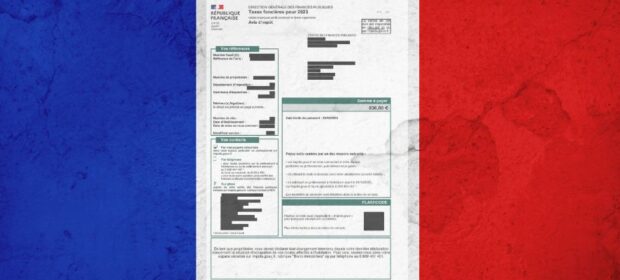
However, for those who are not affected by the back to school mayhem September is a great time to enjoy the warmer weather and the beauty spots of France once the summer tourists have left.
Further to what I wrote in my last Ezine, the interest rate on the Livret A and Livret de Développement Durable et Solidaire (LDDS), which was expected to rise to 4%, shall instead remain at 3% and the French government has committed to keeping it at this rate until 2025. However, an appeal against this decision has been brought before the Conseil d’Etat. The interest rate of the Livret d’Epargne Populaire (LEP) has already dropped slightly from 6.1% to 6%.
If you realise you have forgotten to declare something on your 2022 tax return or you wish to correct an amount, you can, since the 1st August, amend your return on your online space on the impots.gouv.fr website. This service will be available until 11.59pm on 6th December. You should have already received your tax statement for the declaration you did in May and you should pay the amounts requested on this statement but if you do decide to amend your tax return, a new statement will be issued and any overdue amounts will be adjusted or repaid.
The tax authorities should already have your bank details that you provided to take any overdue tax from your account or pay any reimbursements. If this is not the case and if you have less that €300 to pay, you have to pay this by 30th September using the online service. If you have more than €300 to pay on your 2022 tax bill, these amounts will be taken on 26th September and around the 25th of October and November with the last quarter of the payment being taken out of your account on 27th December.
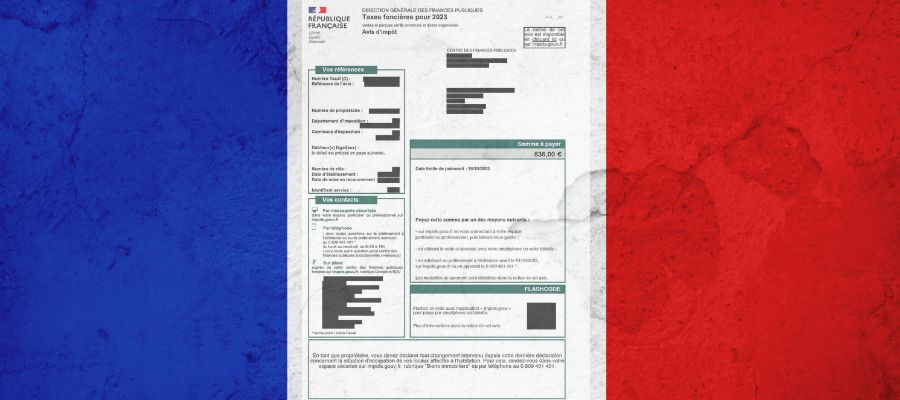
October is the month for the taxe foncière which is due by 16th October or 23rd October if you pay online or with your telephone or tablet. If you have already received your statement, you may have noticed an increase in the amount. The taxe foncière increased by 3.4% in 2022 but it has increased by 7.1% in 2023. This is an average and does not include any increases that the local councils may have voted. The sharp increase is due in part to the annual review of the rental value of the property which takes into account the Consumer Price Index which itself is determined by inflation.
Not everyone has to pay the taxe foncière. There are exemptions for those on pension benefits (ASPA) or disability allowance (ASI and AAH) as well as for those who were 75 and over on 1st January 2023 if your taxable income (RFR) for 2022 was less than €11,855 for one person or €18,233 for a couple. If one partner is over 75 and the other isn’t they can still be exempt. If a person is in a retirement home, their former home, provided it is not rented, is also exempt. New constructions, extensions or changes to buildings (a barn conversion for example) may be partially or totally exempt from taxe foncière for the first 2 years unless the local council has decided otherwise.
Although 2022 was a difficult year financially, this has not stopped the French from investing in Assurance Vie policies. According to the data published in the Le Particulier magazine in September (no 1208), 144.4 billion euros was invested in assurance vies in 2022, only slightly down from 2021 when 148.6 billion euros was invested. Most of this was in Euro Funds which, in spite of their steady decline over the past ten years, saw a slight increase in 2022 to 2% which is however less than the rates on the Livret A and LDDS.
In other news in September, I had the very great privilege of being invited to the GREAT event, organised by the British Embassy, in honour of the King and Queen’s visit to Bordeaux in September. Around 1500 people, French and British, were invited to this special event at the historic Place de la Bourse where we mingled with other members of the Bordeaux British community, bilingual professionals and business owners; sampled British foods, wines and sparkling wine and enjoyed music by local British artists. In addition to seeing the King and Queen, who arrived by tram to this event, Paddington Bear also made an appearance and the Fiji Rugby Team were also there and sang a beautiful song to the King as he was leaving. It was a very special and enjoyable day!
Financial update – France September 2023
By Katriona Murray-Platon
This article is published on: 4th September 2023

I hope you all had a good summer. We spent ten days in Andernos and then enjoyed a much cooler ten days visiting family in the UK. Whilst I was in the UK I saw an advert in the paper for a bank savings account offering around 5% interest on amounts up to £50,000.
However, I noticed that in order to benefit from this rate you would have to commit to leaving the money there for two full years otherwise if you took the money out you would only get around 2% interest. A quick scan of the finance section of the paper showed similar offers. Now, leaving aside the fact that once you are French resident you can’t open a UK bank account, with inflation in July being 6.8% in the UK these rates are still far below inflation. IF you were to have one of these accounts and be a French resident you would need to reduce the interest rate by 30% because that is the French tax that you would have to pay on any gains. Also there is exchange rate risk that needs to be considered.
Some other accounts were brought to my attention in Jersey. However there is no double tax treaty between France and Jersey so any interest earned would be taxable in both countries.
I always advise people to take advantage of the French tax free savings accounts like the LDDS and the Livret A and the LEP if you meet the income threshold BEFORE investing. If you add the CEL account to this list it effectively means you can hold around €50,000 readily available cash earning tax free interest. These rates are reviewed quarterly on 1st of February, May, August and November. You will be pleased to hear that there have been no changes to these rates as at 1st August 2023.
One of the key points about investments is diversification. Not only are the investments we recommend very diversified in terms of geographic location and asset class but if you have invested with us this is usually only a part of your assets.

All investments whether it is your house, your bank accounts, or your other investments, involve some level of risk. You only have to look at the history of the rates on the savings accounts HERE or the current concerns about house prices and mortgage rates in the UK, to see that nothing is guaranteed in the long term. But what we can show you from the past performance of the investments we offer is that over the past three or five years they have performed well. And the longer the investment term, the greater the likelihood of strong, positive returns ahead of the rate of inflation.
Another thing we managed to do at the end of July was to complete our wills and make stipulations about the guardianship of our children. I wrote about guardianship HERE but I admit I never got round to doing anything about it until now. The husband of a French financial adviser that I recently met is the Notaire in an office in our neighbourhood so we were able to make an appointment with him. We hand wrote our wills before the notaire, signed and dated them and then handed them in with a cheque for them to be registered. It was all very easy and I’m glad that it is now sorted.
By now you should have been able to view your tax statements in your online tax account, if you have any questions about the figures please do let me know.
After a long and much needed break, I am excited to be back at work and arrange appointments with my clients and those who have contacted me. If you want to speak to me about something please do let me know.
Looking forward to speaking or hearing from you soon!
Financial update June 2023
By Katriona Murray-Platon
This article is published on: 19th June 2023

Tax season is drawing to a close. However this year there is still something you need to make sure you have done before you can get out there and enjoy the summer weather.
You may still need to do the property declaration that I mentioned in my February edition. The declaration service has been available for several months now and so enough time has passed to be able to address some of the issues that have arisen.
Just as a reminder, if you own a property, and therefore pay taxe foncière, you have to declare the buildings on the land you own if they existed on 1st January. Because the Taxe d’habitation has been scrapped for main residences the French authorities want to find out which buildings are occupied and rented (even if just for holidays) which will allow them to more accurately establish the taxe d’habitation on second homes this autumn.
You must declare anyone who is occupying a property which belongs to you, even if it is a family member living there for free. However if you are only renting a room in your house, you do not need to declare this separately.

If the ownership of the property is divided between the bare owners (nu proprietaries) and the beneficiaries (usufruitiers) it is the latter who should declare the property on their online tax account.
You may have noticed that any outhouses, sheds and garages also appear on the declaration. If these have been converted to be rented or are simply let as parking spaces, they still need to be declared. A garage that is less than 1km from the main house is considered as adjacent to the property and therefore may be included in the surface area calculation for the taxe d’habitation.
The declaration can only be done online. If you do not have access to the internet (or know someone who doesn’t) or if you or they are really having problems completing this form online, you can call the tax office on the number below or make an appointment with your local tax office and they can assist you. Some post offices also have someone there who can help you with administrative matters.
If you have any problems with the declaration you can call the tax office on 0809 401401 or use the messenger service and the drop down menu to select the problem.
If you have an elderly resident who has gone into a home but has kept their former home and it is rented, they still need to declare it. There is an exemption from taxe d’habitation for residents of retirement homes (Ehpads).
If you rent a property you have to declare what kind of rental it is (long term or holiday let) and the identity of your tenants but you don’t need to declare the actual rent received just yet, this will only become mandatory in 2025.
You have until the end of June to complete this declaration so do take your time to make sure that the information is correct.
As always if you have any questions on this or any other matters please do get in touch!
Financial update May 2023
By Katriona Murray-Platon
This article is published on: 10th May 2023

The tax season is fully underway and whilst those who are declaring for the first time by paper have until 22nd May to complete their returns and most other people in most departments have until early June to complete their tax return, many people want to get it done as soon as possible.
Now that all the forms are available (which can be downloaded here) we can have a clearer idea of how to declare.
If you have employed someone to do your tax return, the chances are you have already sent off all your information. However if you want to have a go at doing your own tax return, here are my top tips for this year!

Tips for your taxes
Everything is declarable, not everything will be taxable!
- Get all your information together. If you are using your SATR from the UK, make sure you decide which number you are using (April 22 or April 23) and stick to that method for UK based income. If you suddenly change and start taking the figures from your bank account then you will be double taxed on the first four months of the year. Collect all your statements, payslips, tax certificates together in the one place and note down the figures for all your sources of income and the exchange rate at the date of payment (or the annual average).
- You need to declare all your income on the main tax form (called the 2042), you will also need to put any foreign sourced income on the 2047 and you will need to declare all your non-French bank accounts on the 3916. If you are doing the return for the first time on paper you will need a paper copy of all these forms. You will also need the 2042 C form as that is where you will find boxes 8SH and 8SI that you must tick if you have an S1 so that social charges aren’t charged on your pensions and that the reduced rate of social charges of 7.5% as opposed to 17.2% are charged on any investment income.
- Healthcare: If you are declaring online you need to tick box 8SH and 8SI to inform the French authorities that you are covered for your healthcare by another system of the EU (including the UK).
- Bank accounts and assurance vies: If you are declaring online you need to tick box 8TT (for assurance vies) and 8UU (for bank accounts) in order to create the 3916 form which needs to be completed with the details of these accounts. If you are declaring on the paper form, these boxes are at the bottom of the main 2042 form. If you are declaring an assurance vie you will need to have the value (in euros) of the account as at 1st January 2022.
- Foreign sourced income must go on the 2047 form (the pink one). Most foreign pensions and salaries go in section 1 of this form but UK salaries, UK rental income, UK Government pensions, which are all declared in France but given a tax credit equivalent to the tax that would have been paid in France all have to go into Section 6 of this form in order to get the tax credit (box 8TK on the 2042 form).
- Don’t forget any charitable donations that you made in 2022. French based charities send you a tax certificate, so you can use this to enter the correct amount.
- Don’t forget the kids! The tax credit for child care costs for children under 6 (born after 1st January 2016) have increased from €2300 to €3500 per child and you get 50% of this amount. This is for expenses for a nanny (nounou), nursery, after school care and holiday club. If however your child is now over 6 but you still have someone to collect them from school, this is counted as a home help tax credit (see below).
- Tax credits for home help. If you have a gardener or cleaner or have had some other home help in 2022, and you haven’t already received the tax credit automatically, you can declare these amounts on the 2042 RICI form here You are allowed at tax credit of 50% of any expenses up to a maximum of €12,000.
Not everything has to be 100% accurate. If you get close to the deadline, just submit your tax return as it is, you can amend the tax return, without penalties, through the correction service which will open at the beginning of August.
If you have any questions please let me know by email but if you would rather speak to me about something, please do give me a call.
French financial updates April 2023
By Katriona Murray-Platon
This article is published on: 12th April 2023

April hails the beginning of tax season. For those eager bunnies who want to get on with it as soon as possible please note that the tax season will begin on 13th April with the online service being available and the new 2022 income tax forms available to be printed online or found at the tax offices from this date.
If you do want to get it over and done with, that is understandable, but actually this year you have a bit more time to get it done as most of the submission deadlines are either towards the end of May or even beginning of June.
Those submitting their first paper returns have until Monday 22nd May 2023 at 11.59pm, as attested by the postal stamp. The other dates for the online submissions are as follows:
- Zone 1 or departments numbered 1 to 19 have until Thursday 25th May 2023 until 11.59pm
- Zone 2 or departments numbered 20 to 54 have until Thursday 1st June 2023 until 11.59pm
- And Zone 3 or departments numbered 55 to 974/976 have until Thursday 8th June until 11.59pm
At the time of writing and until the 13th April, I can’t comment on any changes in the tax forms but in my next Ezine I will give more information about any specific aspects of the 2022 declarations. You can always download our free tax guide HERE and please also look at my adviser page for previous articles on tax matters.
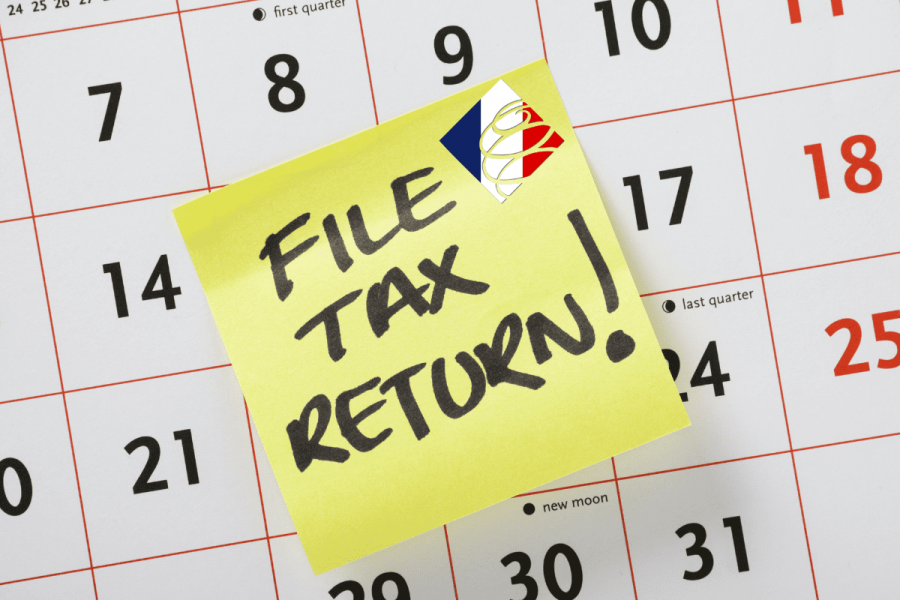
As tax residents in France, you have to declare your worldwide income irrespective of where it comes from. Not everything is taxable, depending on the provisions of the double tax treaty, but everything is declarable. One of the things you do not need to worry about is any French sourced income like salaries, French pensions, French bank interest. This information is generally already completed on your tax return so you just need to check that it is correct. You only need to declare your foreign bank accounts on the 3916 form and not any French accounts or investments.
Tax offices often get confused about what foreign income gets a tax credit under the double tax treaty and what gets a tax credit because it was actually taxed in the country in question whereas, very often, because the income falls under the tax threshold the income wasn’t actually taxed. Well the French Administrative court, the Conseil d’Etat has just confirmed in a decision dated 20th March 2023 (https://www.legifrance.gouv.fr/) that where a double tax treaty grants a tax credit on this income, this is not subject to whether or not the income has in fact been taxed in the country from which it originated.
Finally, an additional energy cheque of an amount of between €48 and €277 depending on income, will be sent out and can be used until 31st March 2024 to pay gas or electricity bills. This is in addition to the exceptional energy cheque and the wood and fuel cheque that have been sent out already.
I will be available for meetings except for the week commencing 17th April as I will be away with my family. But there are still plenty of slots for meetings in the second and last week of April. Please do get in touch with any tax or financial questions.
Financial updates March 2023
By Katriona Murray-Platon
This article is published on: 8th March 2023

March is always a busy month for me and this month is already looking to be the same thing. Whilst all is quiet on the tax front, for now, I am enjoying the calm before the tax storm to do client reviews and meet new people.
One of the questions that came up this month was to do with wills and power of attorney. I have already written about wills in previous articles and whilst I do not undertake to help people write their will many people find it helpful to have a conversation with me before speaking to a notaire just to fully understand the implications for expats in France. So if you haven’t written a will and have any questions please do get in touch.
When you have assets in the UK and in France it is important to have a UK will and a French will and these should refer to and not repeal or revoke each other. Equally, if you have money paid into a UK account, over which you would need someone to have power of attorney, it is a good idea to have a UK power of attorney for your UK accounts and a French power of attorney for French accounts. Whilst a UK power of attorney is, under The Hague Convention, valid in France, and a French power of attorney is, if properly drafted, legalised and translated, valid in the UK, it would be easier for those close to you, whom you have appointed as your attorney, to have a registered power of attorney in France and in the UK. This will avoid lengthy administration and translation costs. It is best to consult a notaire to make sure that your French power of attorney is properly drafted and will, come the day, be accepted by French banks.

Hopefully you have already had a look at your tax page and declared your property, if not you have until 1st July 2023 to do this. Just to add to the information in last month’s Ezine, if you rent a property you will have to declare the amount of rent. This information will be used to calculate the rental value of the properties in your area and therefore the Taxe Foncière. However you don’t have to declare the rent just yet, you have until July 30 June 2025 until this becomes mandatory.

Finally, as 8th March is International Women’s Day, I wanted to share with you a photo of the lovely ladies who work for or with The Spectrum IFA Group. This photo was taken at our Gala event in Gleneagles. Before officially joining Spectrum I was encouraged to speak to some of the female advisers to find out their experience and it is because of their experience working in Spectrum that I decided to become a financial adviser.
Today I have the great privilege to work with this amazing group of women! In addition to this I have a large and growing number of female clients who I am pleased and proud to advise. Happy Women’s Day to all my female clients! If no one else is spoiling you, please do take the time to do something nice for yourself to celebrate International Women’s Day.
Financial updates February 2023
By Katriona Murray-Platon
This article is published on: 19th February 2023
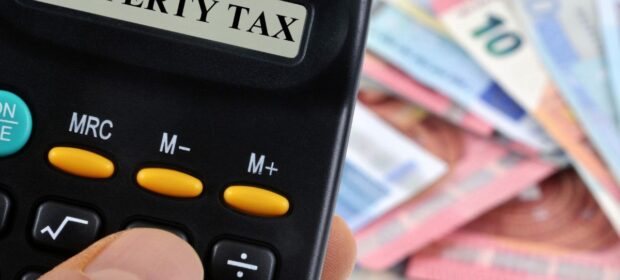
The Taxe d’habitation has officially been scrapped for main residences in 2023. However in order to find out which properties may still be subject to taxe d’habitation (second homes, rentals etc) and the tax on vacant lodgings, the French tax authorities are requiring all those who own their own homes, second homes or rental properties to do a new declaration before 1st July 2023.
I’m so glad that February is here. After a long and cold January it’s so nice to see the bright sunshine and the mimosa flowers in my garden. That said January wasn’t too bad since I was able to get away for a lovely week in Gleneagles in Scotland for the Spectrum conference. It was a fun week of meeting with product providers, celebrating 20 years of Spectrum, highland games, walks in the Scottish countryside, and horse riding. If you thought the 2022 was a difficult year in the markets you were right. When I spoke to our product providers at our conference they told me that 2022 was one of the most difficult years they had ever experienced. Not only were equities down but the bond markets suffered too. No one can say what may happen in the future, but we can always hope, and already there are signs of improvement in 2023.
The Taxe d’habitation has officially been scrapped for main residences in 2023. However in order to find out which properties may still be subject to taxe d’habitation (second homes, rentals etc) and the tax on vacant lodgings, the French tax authorities are requiring all those who own their own homes, second homes or rental properties to do a new declaration before 1st July 2023. This includes properties held jointly, usufruitiers and properties within an SCI. This service is available on your online tax account from 1st January 2023 and the declaration has to be completed by 30th June 2023.
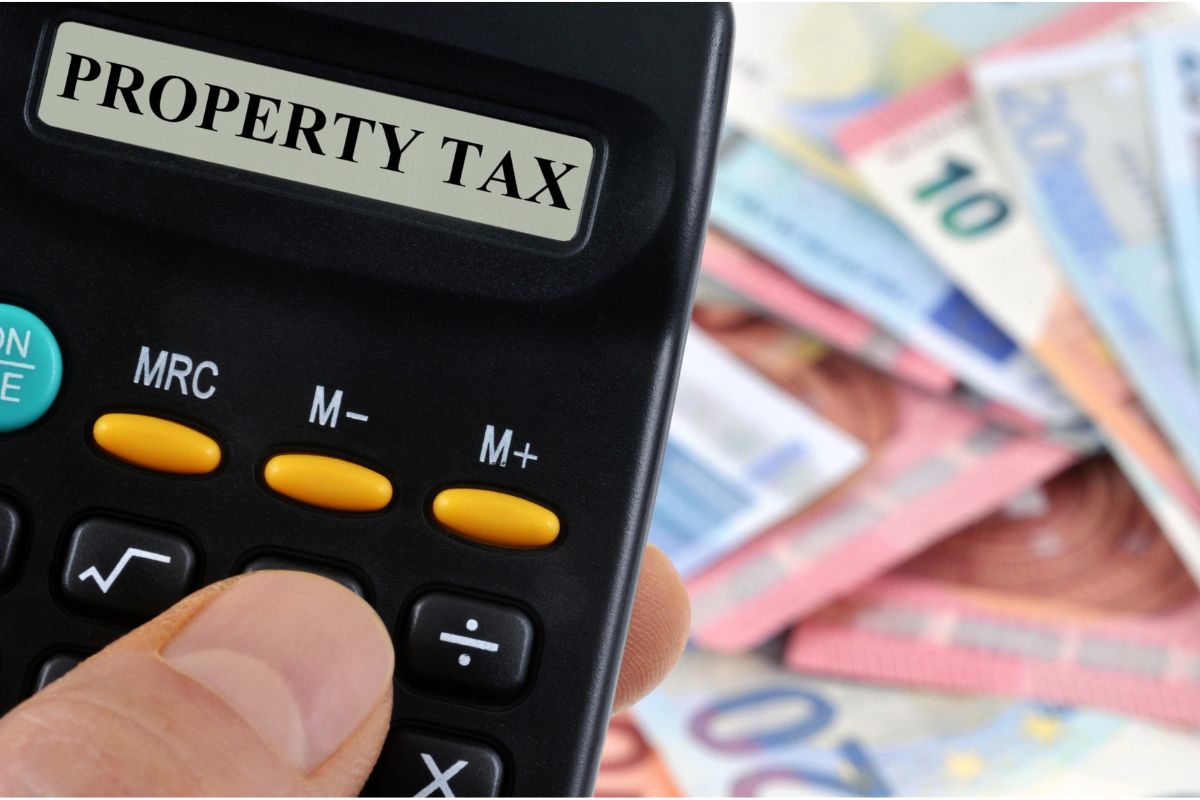
I had a go at doing this declaration on our own tax account and it is really quite easy to do. If you log into your account on the French tax website (impots.gouv.fr) , at the top there is a tab at the top with “Biens Immobilier”, you click on that and it will show all the properties you own, this will include any garages or out houses on your property. There should be a blue alert bubble saying how many declarations you have to do. You click on that and you will see exactly which declarations need to be done. Then you click on the option to declare your property. It will list the named occupants of the property, if nothing has changed then click on “aucun changement” (no changes) and then “valider” (approve) then it’s all done! The whole process took about 5 minutes, much less than the actual income tax return! In our case they listed our house and garage separately so I had two separate declarations to do for these. My husband is also a “nu proprietaire” of his mother’s house following the death of his father some 20 years ago. This house was listed but all we could do was consult the declaration, we didn’t need to do this declaration as his mother is the occupant of this property.
This declaration has to be done and there could be a fine of €150 per building for not declaring or for any mistakes or omissions on the declaration. If you have any questions you can contact the tax office via the messenger service by choosing the option “j’ai une question sur le service Biens Immobiliers” (I have a question on the property service).
The tax brackets have been officially increased by 5.4%. I wrote about the new tax brackets in my November Ezine but I will publish them again when we get closer to tax season. There is good news for parents with young children who go to a nanny or nursery, the amount of expenses allowed for the tax credit has finally been increased from €2300 to €3500 per child (making the total tax credit €1750 per child) and this will apply to your childcare expenses in 2022.
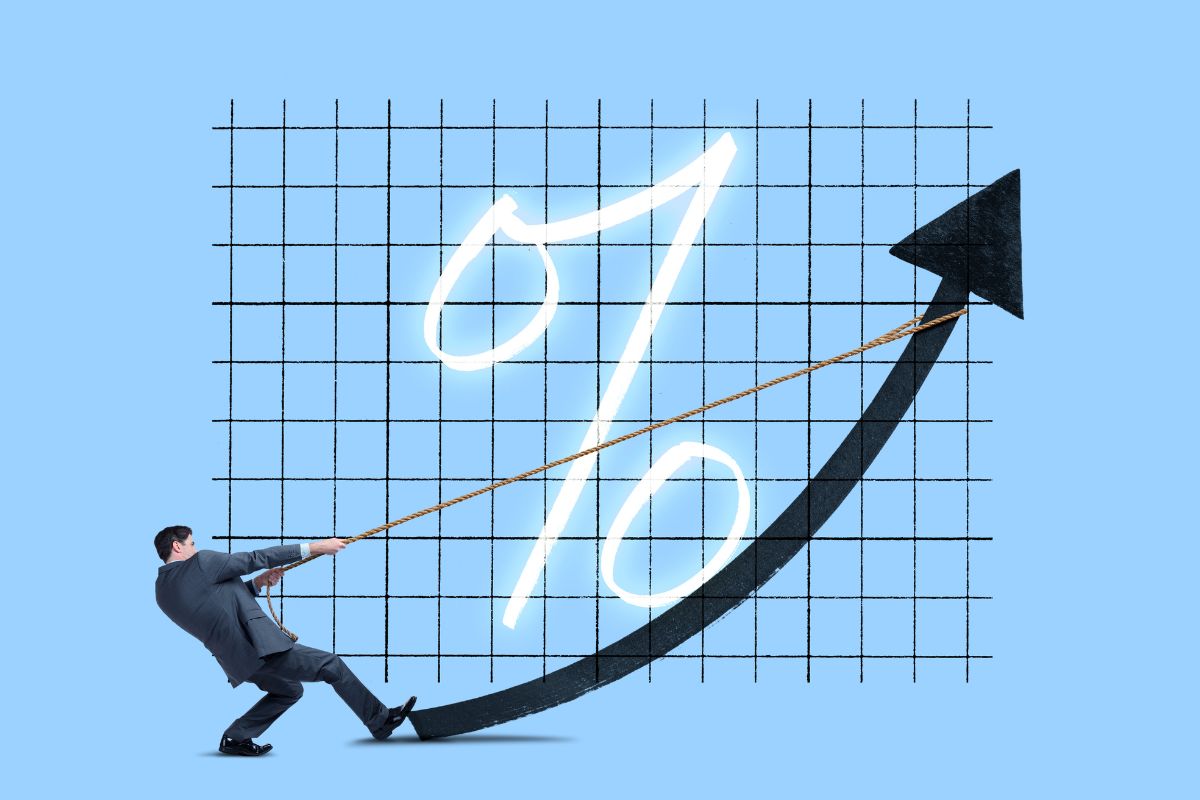
Further good news is that the savings accounts the Livret A and the LDDS, which did have a 2% interest rate have now been increased to 3%. The LEP now will have an interest rate of 6.1%. However bear in mind that the maximum deposit into the Livret A is €22950 and 3% of this is €689. The LDDS maximum balance is €12,000 at 3% this equals €360. Presuming you meet the income threshold, you can only put a maximum of €7700 which at a rate of €6.1% would earn you €470. So on €42650 of capital put into these savings account, you would earn €1519 fee from tax and social charges or 3.56%. Furthermore these amounts are paid yearly not monthly or quarterly so you will only receive these amounts on 1st January of next year.
Finally if you didn’t do any renovations or improvements to the energetic efficiency of your home in 2022 you can still do so in 2023, irrespective of your level of income. The renovation bonus or MaPrimeRenov’ has been extended until 31st December 2023 and the amount of financial assistance available has also been increased. To find out what you can do according to your income levels and what financial assistance you can receive, this document is useful: https://www.ecologie.gouv.fr/sites/default/files/19164_maPrimeRenov_DP_Janvier%202021.pdf It unfortunately dates from January 2021 so needs to be updated with the new amounts but it is still useful to give you a rough idea.
If you have any questions on any of the above or any other financial matters please do get in touch.
Tax credits in France
By Katriona Murray-Platon
This article is published on: 9th January 2023
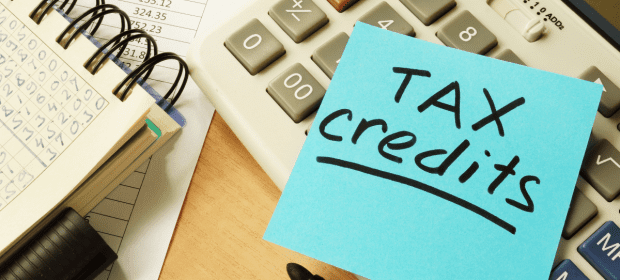
Happy New Year! I wish you all a very happy, healthy and prosperous year in 2023! I hope you all had a nice Christmas. We made it to Disneyland in spite of the train strikes in France and then onto the UK for our first British Christmas since 2018! It was good festive fun!
As from 15th January 2023, the tax office will pay you a 60% advance on some tax credits and tax reductions. These include the tax credits/reductions for charitable donations, home help costs and childcare costs. This will be 60% of the amount declared in 2022.
In my last Ezine, I mentioned the fuel allowance. Now, since 22 December 2022, there is an allowance of between 50 and 200 euros for those using logs or pellets to heat their homes. This is for people with less than 2260 euros income per month for a single person or 4750 euros for a couple with 2 children. You will need to request this payment by going to this website https://chequeenergie.gouv.fr/beneficiaire/eligibilite.

Since 1st January, receipts and bank card receipts will only be printed if you specifically request them. Also, from 1st January, companies (Entreprises individuels and SCIs) can do their own formalities online on formalites.entreprises.gouv.fr
No need to throw out your equipment when it breaks down. From 15 December 2022, it is even cheaper to repair your household appliances. There is a now a government allowance of between 10 and 45 euros off the price of repair depending on the type of appliance which works out to be around 20% of the repair costs. This only applies to appliances that are no longer covered by their warranty. For more details and to find an approved repair company go to: https://www.ecosystem.eco
Finally, in Spectrum news, from 16th to 20th January I shall be joining my colleagues for our annual conferences at the Gleneagles hotel in Scotland. As you know my name is Scottish and my father and his family are from Scotland, so I am very much looking forwards to going there and celebrating Spectrum’s 20th anniversary!
After five full years in the business I am beginning to get a sense of how variable each year can be. We have had three very strange years from covid and lockdown, to coming out of lockdown and getting vaccinations and then last year the war in Ukraine and inflation. Some analysts suggest that inflation may subside in 2023 but stop short of actually predicting this. Nobody has a crystal ball but I know what I do have that’s important which is my family, my friends and my clients. I’ve got you and you’ve got me, so whatever 2023 holds, I know that we can see it through together!
All the best for 2023.
Financial update in France
By Katriona Murray-Platon
This article is published on: 6th December 2022

The fuel allowance, tax returns & retirement planning
So here it is, Merry Christmas! I hope that you are having fun or planning to do so. There is much to organise before the end of the year, so before you get too wrapped up (excuse the pun) in Christmas preparations, I wanted to fill you in on some bits of news/financial points for the end of the year.
Given the increase in energy bills, the French government shall grant two one-off fuel allowances to help people pay their energy bills. Around 12 million homes will receive a one-off energy cheque. If you are eligible for the fuel allowance you should receive this €200 cheque automatically,. If your taxable income (revenu fiscal de référence par unité de consommation (RFR/UC)) is greater or equal to €10 800 € and less than €17 400, you will receive a cheque for €100. This cheque will be sent automatically from the end of December, you do not have to do anything to get it.
For the homes using “fioul domestique” : If you have already received the energy cheque for 2022 and you have used it to pay for your heating from a “fioul domestique” supplier you will automatically receive another cheque for €200 from November 2022
If you haven’t received this yet or you want to check whether you are available there is a website here https://chequefioul.asp-public.fr/ and through this you could receive a cheque for between €100 and €200 depending on your situation. If you haven’t received any cheques and you can’t make a request on this website you can contact them via this website: https://chequeenergie.gouv.fr
For those of you thinking of replacing your heating system with something more energy efficient, since the 29th October, the lower income households could receive €5000 of state aids (instead of €4000) and other households could get up to €4000 instead of €2500.
The annual social security ceiling (plafond annual de la Securité social) which is used to calculate various retirement contributions and the maximum allowed amount of benefits and French pensions has increased to €43,992. A monthly maximum of €3,666 will apply from 2023. This is the first time that this has increased in three years!
Please note that you have until 14th December to correct your 2021 tax return on your personal account on the impots.gouv.fr website. After this date you will have to correct it using a paper return.
The 15th December is the last day to pay the taxe d’habitation for second home owners in France. You have 5 extra days if you pay online or by direct debit.

If you are self-employed in France and earn over €5000 per annum, you will have to pay CFE. This is a local tax and is based on the rental value of the space you use for your business. If you don’t rent premises for your business, you have to pay the minimum CFE and this will be calculated on your annual turnover. It all depends on the rate applied by your local authority. The CFE must be paid by 15th December. You can also spread the payments out over the year.
Finally, if you are still actively working in France and are likely to do so for the next 10 or 15 years or more, and you pay tax at least in the 30% tax bracket, it may be worth opening a PER. If you already have a PER, and you have some money to invest in it, make sure you do this by the end of the tax year, ie 31st December 2022. If you are in the 30% tax bracket, 30% of the amount you invest in the PER can be deducted from your tax (41% if you are in this tax bracket) up to a maximum amount of 10% of your net taxable income from the previous year and up to a maximum amount of €32,419 in 2022.
2022 has been a brilliant year for me, my best so far, and I have been so happy to welcome lots of new clients.
I want to thank all of you for your time and attention to these newsletters and your kind comments. I especially want to thank all my clients for entrusting me to set up their investments. As always if you have any questions on the above or any other matters please do get in touch.
I shall be away from 18th to 28th December, first to Disneyland Paris and then to the UK for a good ol’ British Christmas with my family. I will be checking emails and can do phone calls if necessary.
I wish you all a very Happy Holiday season and look forwards to speaking to you next year!
Regards
Katey Murray
Partner
The Spectrum IFA Group
Mob: 06 81 61 78 44
Tel: 09 53 28 88 22

Children and taxes in France
By Katriona Murray-Platon
This article is published on: 4th November 2022

I am the proud mother of two wonderful boys. I love my children very much, but in addition to the joy they bring to my life, they also bring tax advantages. Admittedly the tax benefit is probably less than the overall expense of having children, but one must count one’s blessings!
Let’s take a couple earning €60,000 per annum.
The current tax brackets for 2022 are as follows:
| Income | Tax rate |
|---|---|
| Up to €10,225 | 0% |
| From €10,226 to €26,070 | 11% |
| From €26,071 to €74,545 | 30% |
| From €74,56 to €160,336 | 41% |
| Over €160,336 | 45% |
*These tranches are likely to increase by 5.4% in 2023.
If they have one child? their tax is reduced by half a tax part. Whereas alone they were in the 30% tax bracket, with one child their income is divided by 2.5 to €24,000 per person, which puts them into the 11% tax bracket. Their tax bill would be €3,788 instead of €5,844. The child has saved them €2,056 of tax. If they had a second child, and on the same income, their tax would be €3,226. The second child has therefore saved them €562 euros.
In addition to lowering your taxes, if your child is under six and goes to a child minder or nursery, 50% of these costs, up to a maximum of €2,300 per child may be deducted, so a maximum tax credit of €1,150 per child. This is a tax credit, so in our example above, the couple would pay only €926 in taxes.
After six years old and until they go to high school, as delightful as they are during this time, there are no tax advantages. From high school onwards there is a small tax reduction of €62 per child in high school, €153 per child in sixth form college and €183 per child in higher eduction (provided it is non-remunerated studies).

However when they are in their 20s and pursuing further education, this is the time to look at whether you are better to keep them in your tax household or take them out of your tax household and deduct the money you give them to pay for their studies, accommodation and food etc. I remember, when I was a tax lawyer, suggesting to a lady who had four sons, that she should remove her youngest son from her household – she looked a bit shocked! I meant of course that she should take her son out of her tax household, not kick him out of her actual household. It is quite common for children in France to remain at home during their university studies. The money given to an older child is deducted from the household income before it is subject to tax.
For an adult child to be considered part of your tax household, they must be under 21 on 1st January of the tax year (so 1st January 2022 for the tax return done in 2023), or be under 25 years old on 1st January 2022 and in higher/further eduction as at 1st January 2022 or 31st December 2022. There are also various conditions for children living with an adult relative.
So if we look at the couple above and both their children are at university. In 2021 they could have deducted up to €6,042 per child from their income which would have reduced their tax to €3,021 for the two of them without the children instead of €3,226 had the children been included on their tax return. For 2022, according to the Draft Finances Bill, this deduction is increased to €6,368 per child. For the full reduction to apply, you must be able to prove that the child needs this money, that they are unable to work or, if they have a student job, that they earn less than the minimum wage. You can deduct up to this amount but you have to be able to prove the expenses if so requested. If the child still lives with you, you can deduct their accommodation and food bills, up to €3,592, without need to justify these expenses.
Once your child is removed from your tax household, this will mean that they have to do their own tax return and declare the financial help that you are giving them. However, if they are earning less than the first tax bracket (€10,225 in 2021, €10,777 in 2022) then they won’t have any tax to pay.
For any questions on Children and taxes in France or on your general financial planning in France, please do get in touch via the form below:


